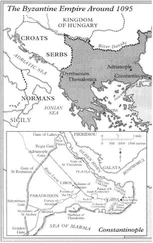Tom Harper - Siege of Heaven
Здесь есть возможность читать онлайн «Tom Harper - Siege of Heaven» весь текст электронной книги совершенно бесплатно (целиком полную версию без сокращений). В некоторых случаях можно слушать аудио, скачать через торрент в формате fb2 и присутствует краткое содержание. Жанр: Исторический детектив, на английском языке. Описание произведения, (предисловие) а так же отзывы посетителей доступны на портале библиотеки ЛибКат.
- Название:Siege of Heaven
- Автор:
- Жанр:
- Год:неизвестен
- ISBN:нет данных
- Рейтинг книги:5 / 5. Голосов: 1
-
Избранное:Добавить в избранное
- Отзывы:
-
Ваша оценка:
- 100
- 1
- 2
- 3
- 4
- 5
Siege of Heaven: краткое содержание, описание и аннотация
Предлагаем к чтению аннотацию, описание, краткое содержание или предисловие (зависит от того, что написал сам автор книги «Siege of Heaven»). Если вы не нашли необходимую информацию о книге — напишите в комментариях, мы постараемся отыскать её.
Siege of Heaven — читать онлайн бесплатно полную книгу (весь текст) целиком
Ниже представлен текст книги, разбитый по страницам. Система сохранения места последней прочитанной страницы, позволяет с удобством читать онлайн бесплатно книгу «Siege of Heaven», без необходимости каждый раз заново искать на чём Вы остановились. Поставьте закладку, и сможете в любой момент перейти на страницу, на которой закончили чтение.
Интервал:
Закладка:
Sigurd had woken and was standing among them, squinting against the light. A black bruise ringed his left eye and his matted hair sprawled untidily over his shoulders. At the sight of me approaching, his face screwed up in disgust. The last night’s quarrel had left us with too many things to say to each other.
I said none of them. As quickly as I could, I relayed Saewulf’s instructions. I thought Sigurd would object, but he simply sneered his approval, then picked up the nearest sack and threw it over his shoulder. It must have held almost twice his weight in iron, but he did not flinch.
‘Where do you want it?’
It was hard work that wanted many men; instead, the twelve of us laboured to carry the sacks and barrels through the deserted streets of Jaffa, up the slope to the fallen arch where the gate had once stood. Each time we reached the gate and deposited another load, we looked out to the east in search of an approaching army. Each time we turned back towards the harbour we looked west, over the harbour walls to the sea beyond. The Egyptian ships had dropped their sails for battle and had their oars out, prowling the water like wolves. For some reason, they did not seem to have fired any more naphtha canisters at us.
‘Why don’t they attack?’ I wondered.
‘Perhaps they’re waiting for reinforcements,’ said Aelfric.
I looked back to the east but there was nothing. Meanwhile, down in the harbour, Saewulf’s men seemed to have started doing the Fatimids’ work for them. On all but one of the ships they had stripped away the rigging and felled the masts; I could see the long trunks lying on the wharf, the sails still wrapped around the yards. Perhaps Saewulf meant to deny the Egyptians a target — though if so, he had forgotten his own flagship, whose green banner still flapped defiantly from its masthead. By the time I had brought my next load up to the gate, the ship had slipped its moorings and was creeping out towards the harbour’s mouth, its banks of oars rising and falling. I could see its crew manning the benches, and Saewulf standing by the tiller in the stern, a coat of chain mail pulled over his green tunic and a helmet gleaming in the sun.
‘But he said he wouldn’t attack.’ I did not understand. The Fatimids would surely burn Saewulf into the water, as he had predicted — or crush him head-on. Their lead ship had neared the harbour mouth and was closing rapidly. Two more followed close behind on its flanks.
‘Perhaps Saewulf found his balls after all.’ Sigurd dropped a sack of trenails with an angry thud. ‘Thirty years too late.’
‘Or perhaps he’s lost his mind.’ No other ships were moving to support Saewulf’s lone charge — in fact, so far as I could see, their crews seemed to be busy dismantling them. One was already at least a foot nearer the water, and I could hear the urgent sounds of saws and hammers reducing it ever further. What was Saewulf doing? I looked at Sigurd, wondering if he understood his countryman’s madness any better than I did. He gave no sign of it.
It looked as though Saewulf meant to ram the Fatimid ship bow to bow. Watching, I felt a memory stir in me, of an October afternoon without a trace of autumn, when Bilal had taken me to see the caliph’s shipyards. Was this one of the boats I had seen drawn up on that island in the middle of the Nile, then a skeleton, now clothed in its full war-like flesh? Had fate been drawing back the curtain that day, offering me an unwitting glimpse of my future?
The two ships were barely a spear’s throw apart now, their collision inevitable. The Egyptian ship was broader, heavier and stronger: with the carved lion’s head on her prow, and the banks of oars like wings, she looked like nothing so much as a griffin in flight. With her copper ram she would overwhelm her adversary in an instant, then overrun the harbour and the cargo. We would save none of it — we would barely have time to save ourselves.
And then something extraordinary happened: a new madness, which made everything else seem almost rational. A cluster of sailors on Saewulf’s deck let go the ropes they held. The square sail they had bound tumbled loose from the yard and was immediately hauled taut. With the onshore breeze almost straight ahead, the effect was dramatic: the ship shuddered to a halt; then, pushed by an invisible hand, began to drift backwards.
Next to me, Sigurd turned away in disgust. ‘Coward,’ he hissed.
Whether a desperate tactic or a sudden loss of nerve, Saewulf’s trick would not save him. The Egyptian ship was too close, the carved lion’s outstretched arms almost ready to maul the retreating wolf. One more heave on their oars would surely bring the two together.
The lion-headed prow passed between the two ruined watchtowers. Saewulf had placed archers in the ruins: they loosed a few arrows, but they were mere pinpricks, fleas against the lion’s side. They would not stop the ship. It ploughed forward, its bow wave intersecting the line of surf across the harbour mouth. The line, I realised, where the water rippled over the submerged hawser that lay there.
The Egyptian ship blundered head first into the snare Saewulf had prepared. The hawser caught in the elbow where the copper ram joined the prow: the ship shook and cracked. Caught off balance and unable to move forward, its momentum instead carried it along the length of the rope, spinning it around. The mouth of the harbour was not wide: before the crew could react, the sliding bow had careered into the end of the pier. Splinters exploded as the bow shattered; the copper ram must have snapped off, or else been driven back into its own ship. With a great tearing of canvas and cordage, the mast broke free of its holding, tottered for a moment like a drunkard, then crashed to the deck. I saw several of the crew crushed beneath it, or floundering in the tangle of rigging it had brought down.
This was what Saewulf had planned, and he was ready for it. Without need for a signal, his men rushed along the docks to the points nearest the stricken ship. The archers in the watch towers — suddenly far more numerous — rose up and began a new, furious assault. This time they had dipped their arrows in burning pitch, bringing a squall of fire rushing down on the stricken ship. The water around it blistered and spat as wayward arrows dropped wide of the mark, but many more struck home. With her loose sail sprawled across the deck where the mast had fallen, it was a matter of moments before she caught light, and her battered crew had neither time nor discipline to quench the flames. Some flung themselves in the water, where Saewulf’s waiting crew speared them like fish; others tried to scramble onto the pier where the ship had run aground, but men were waiting for them there with axes. None escaped.
A column of black smoke rose into the air as fire took hold of the ship, and the water around it began to boil. Beside me, watching up on the hillside by the fallen gate, I heard Sigurd sigh. He had once told me that, in the legends of his people, the bodies of fallen heroes and kings had been sent to their pagan afterlife in burning ships. I wondered if the sight now stirred some deep ancestral memory in him.
But it was too soon to celebrate a victory. Flames and smoke streamed from the dying ship’s hull, her crew were all slaughtered or burned, but still — against all reason — she did not give up. Incredibly, she seemed to be moving again. At first I could not see how; then I realised that the fire at her bow must also have burned through the hawser that held her. Freed of that restraint, she was drifting ever closer into the harbour. A few of the English sailors on the pier thrust out their spears in a vain attempt to catch her, but if they touched her at all they only succeeded in prodding her further away.
Читать дальшеИнтервал:
Закладка:
Похожие книги на «Siege of Heaven»
Представляем Вашему вниманию похожие книги на «Siege of Heaven» списком для выбора. Мы отобрали схожую по названию и смыслу литературу в надежде предоставить читателям больше вариантов отыскать новые, интересные, ещё непрочитанные произведения.
Обсуждение, отзывы о книге «Siege of Heaven» и просто собственные мнения читателей. Оставьте ваши комментарии, напишите, что Вы думаете о произведении, его смысле или главных героях. Укажите что конкретно понравилось, а что нет, и почему Вы так считаете.










